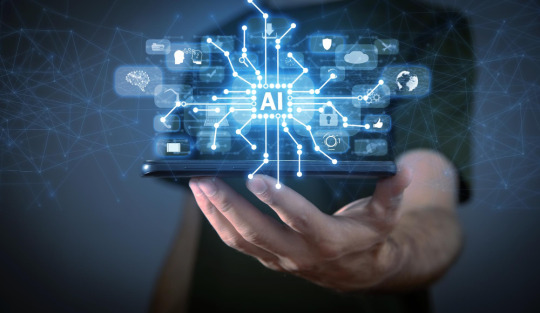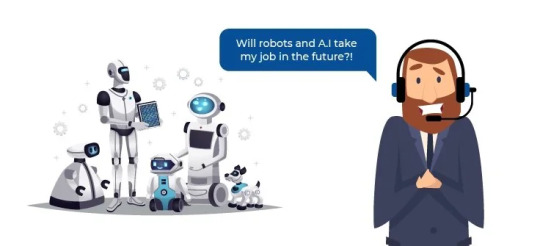#TechEthics
Explore tagged Tumblr posts
Text
It is worrying that (new) technologies are being used in unethical ways to maximize profit.
#ethics#anti capitalism#politics#technology#tech#AI#privacy#corporate greed#techethics#tech ethics#unethical#data privacy#capitalism critique
3 notes
·
View notes
Text
The modern workforce is global, and that’s a strength. But it only works if you can trust who you are working with. That trust needs tools, not assumptions.
2 notes
·
View notes
Text
Agentic Research in Tech: Human Voices Behind the Algorithms
In today’s rapidly evolving digital world, algorithms influence everything—from what we read and watch to how we navigate health care and job applications. Yet, much of tech design is still built on abstraction and efficiency, leaving out the lived realities of users. This is where agentic research introduces a powerful and necessary shift. By prioritizing user voice, experience, and emotion, it humanizes technology development.

Agentic research views users not as test subjects or data points but as active collaborators. In tech design, this means co-creating systems with the people who will use them, drawing from their real-world challenges, emotions, and feedback. It invites deeper questions about ethics, impact, and inclusion—transforming the way digital tools are built and experienced.
Traditional UX research often relies on usability metrics, click-through rates, or predefined tasks. While useful, these metrics only scratch the surface. Agentic methods, on the other hand, go deeper by engaging users in reflective storytelling, visual mapping, journaling, and open dialogue. These tools capture not just how users interact with a product, but why they behave the way they do, what they fear, value, or desire, and how the system shapes their agency.
This approach is particularly important in areas like AI design, health tech, educational apps, and social platforms, where the consequences of digital experiences are deeply personal and emotional. For example, consider an AI recommendation tool used in hiring. Instead of merely measuring response rates, agentic research would involve job seekers in discussions about transparency, bias, and dignity—leading to a more ethical, human-centered solution.
Moreover, agentic research emphasizes co-design, encouraging users to sketch features, build mockups, and critique early prototypes. This not only results in more relevant products but also empowers users as co-creators, building trust and equity in the design process.
Incorporating agentic principles into tech research isn’t just a methodological shift—it’s a moral one. It challenges developers and researchers to think beyond convenience and efficiency, toward empathy, justice, and inclusion.
Using Agentic Research in Tech:
Use reflective journaling tools to help users share their experiences in their own words and time.
Involve users in co-design sessions, letting them shape wireframes, flows, and content.
Test concepts through dialogue, not just usability labs—focus on meaning, not only metrics.
2 notes
·
View notes
Text
AI’s Role in Breaking the Internet’s Algorithmic Echo Chamber

Introduction: The Social Media Bubble We Live In
Have you ever scrolled through your social media feed and noticed that most of the content aligns with your views? It’s no accident. Algorithms have been carefully designed to keep you engaged by showing you content that reinforces your beliefs. While this may seem harmless, it creates echo chambers — digital spaces where we are only exposed to information that supports our existing opinions. This is a significant issue, leading to misinformation, polarization, and a lack of critical thinking.
But here’s the good news: AI, the very technology that fuels these echo chambers, could also be the key to breaking them. Let’s explore how AI can be used to promote a more balanced and truthful online experience.
Click Here to Know More
Understanding the Echo Chamber Effect
What Is an Algorithmic Echo Chamber?
An algorithmic echo chamber occurs when AI-driven recommendation systems prioritize content that aligns with a user’s previous interactions. Over time, this creates an isolated digital world where people are rarely exposed to differing viewpoints.
The Dangers of Echo Chambers
Misinformation Spread: Fake news thrives when it goes unchallenged by diverse perspectives.
Polarization: Societies become more divided when people only engage with one-sided content.
Cognitive Bias Reinforcement: Users start believing their opinions are the absolute truth, making constructive debates rare.
How AI Can Combat Social Media Bubbles
1. Diverse Content Recommendations
AI can be programmed to intentionally diversify the content users see, exposing them to a range of viewpoints. For example, social media platforms could tweak their algorithms to introduce articles, posts, or videos that present alternative perspectives.
Example:
If you frequently engage with political content from one side of the spectrum, AI could introduce well-researched articles from reputable sources that present differing viewpoints, fostering a more balanced perspective.
2. AI-Powered Fact-Checking
One of AI’s most promising roles is in real-time fact-checking. By analyzing text, images, and videos, AI can detect misleading information and flag it before it spreads.
Tools Already Making an Impact:
Google’s Fact Check Tools: Uses AI to verify information accuracy.
Facebook’s AI Fact-Checkers: Work alongside human reviewers to curb misinformation.
3. Intent-Based Content Curation
Instead of focusing solely on engagement, AI can prioritize content based on educational value and credibility. This would mean:
Prioritizing verified news sources over sensational headlines.
Reducing the spread of clickbait designed to manipulate emotions rather than inform.
4. Promoting Critical Thinking Through AI Chatbots
AI-driven chatbots can encourage users to question and analyze the content they consume. By engaging users in meaningful discussions, these chatbots can counteract the effects of misinformation.
Real-World Example:
Imagine an AI assistant on social media that asks, “Have you considered checking other sources before forming an opinion?” Simple nudges like these can significantly impact how people engage with information.
5. Breaking Filter Bubbles with AI-Powered Search Engines
Search engines often personalize results based on past behavior, but AI can introduce unbiased search results by ensuring that users see information from diverse perspectives.
Click Here to Know More
Future Possibility:
A browser extension powered by AI that identifies and labels potential echo chamber content, helping users make informed decisions about the media they consume.
The Future of AI and Online Information
AI has immense potential to transform the way we consume information. But the question remains: Will tech companies prioritize breaking the echo chambers, or will they continue feeding users what keeps them engaged?
What Needs to Happen Next?
Transparency in Algorithm Design: Users should know how AI curates their content.
Ethical AI Development: Companies must ensure that AI serves public interest, not just profits.
User Awareness and Education: People should understand how echo chambers work and how they affect their worldview.
Click Here to Know More
Conclusion: A Smarter Digital World
While AI played a role in creating echo chambers, it also has the power to dismantle them. By prioritizing diversity, credibility, and education over engagement-driven content, AI can make the internet a place of discovery rather than division. But this change requires collaboration between AI developers, tech giants, policymakers, and, most importantly, users like you.
Click Here to Know More
#AI#ArtificialIntelligence#EchoChamber#SocialMedia#TechEthics#Misinformation#FactChecking#DigitalAwareness#AlgorithmBias#FutureOfAI#TechForGood#AIInnovation#CyberCulture#OnlineTruth#MediaLiteracy#usa
2 notes
·
View notes
Text
When Tech Billionaires Reinvent Eugenics
Eugenics is often seen as a dark relic of the past—linked to racist policies and forced sterilization. But what if a new, subtler form of eugenics is quietly taking shape in Silicon Valley?
Not through explicit genetic selection, but through an ideology that glorifies optimization, intelligence, and high performance as the only measures of human worth. Social Darwinism, once discredited, is being repackaged in the language of innovation and progress.
Who gets to shape the future?
Elon Musk, Peter Thiel, and other tech leaders present themselves as visionaries, architects of a better tomorrow. But their worldview shares a troubling core belief: only the most capable, the most intelligent, the most "enhanced" deserve to thrive.
Peter Thiel openly criticizes democracy, arguing that "freedom" thrives only under the rule of an enlightened few. Musk speaks of biological enhancement and space colonization as essential to humanity’s survival. Meanwhile, Silicon Valley startups pour billions into genetic engineering, AI-driven talent selection, and life extension—but who will have access to these advancements?
The Rise of Economic Eugenics
This is not traditional racial eugenics, but an economic form of selection where only the "most productive" individuals matter. Tech moguls advocate for skilled migration policies—not for the sake of inclusion, but to extract the best and discard the rest.
Medical research funding follows the same logic: rare diseases get sidelined because they aren't "profitable," while cognitive enhancement and biohacking attract massive investments. In a world where resources are limited, who gets to decide who is worth saving?
A Dangerous Future
This ideology is no longer confined to Silicon Valley. It has echoes in political movements that prioritize the strong over the vulnerable, cutting social aid and shifting towards a ruthless meritocracy.
If we continue down this path, we risk creating a world where only the optimized, the efficient, and the wealthy are deemed worthy of survival.
How do we resist this shift?
The real challenge isn’t just technological; it’s ethical. Do we accept a society where only the strongest thrive, or do we fight for a future that values all of humanity—including its fragility?
#TechEthics #SocialDarwinism #Inequality #FutureOfHumanity
#TechEthics#Eugenics#SocialDarwinism#Transhumanism#SiliconValley#Inequality#FutureOfHumanity#Biohacking#AIEthics#GeneticEngineering#WealthInequality#TechElites#SurveillanceCapitalism#EconomicEugenics#HumanOptimization#Longtermism#BigTech#PhilosophyOfTechnology#EthicalAI#InnovationOrExclusion
2 notes
·
View notes
Text
youtube
You Won't Believe How Easy It Is to Implement Ethical AI
#ResponsibleAI#EthicalAI#AIPrinciples#DataPrivacy#AITransparency#AIFairness#TechEthics#AIImplementation#GenerativeAI#AI#MachineLearning#ArtificialIntelligence#AIRevolution#AIandPrivacy#AIForGood#FairAI#BiasInAI#AIRegulation#EthicalTech#AICompliance#ResponsibleTech#AIInnovation#FutureOfAI#AITraining#DataEthics#EthicalAIImplementation#artificial intelligence#artists on tumblr#artwork#accounting
2 notes
·
View notes
Text
AI's Social Impact: Transforming Industries and Empowering Society

Artificial Intelligence (AI) is reshaping our society and impacting various aspects of our lives. Here's an overview of AI's social impact:
1. Accessibility:
AI technologies are enhancing accessibility for individuals with disabilities. Natural language processing enables voice-controlled devices, aiding those with mobility impairments. Computer vision assists visually impaired individuals through object recognition and navigation systems.
2. Education:
AI is revolutionizing education by providing personalized learning experiences. Adaptive learning platforms use AI algorithms to tailor educational content and pacing to individual students' needs, promoting effective and engaging learning.
3. Employment and Workforce:
AI automation is transforming the job landscape, with both opportunities and challenges. While certain jobs may be automated, new job roles will emerge, requiring individuals to adapt and acquire new skills. AI can also augment human capabilities, enhancing productivity and efficiency.
4. Ethical Considerations:
AI raises ethical concerns that need to be addressed. These include issues of algorithmic bias, transparency, accountability, and privacy. Ensuring fairness and avoiding discrimination in AI systems is crucial for creating an inclusive and equitable society.
5. Healthcare:
AI has the potential to revolutionize healthcare by improving diagnostics, treatment planning, and patient care. AI-powered systems can assist in early disease detection, personalized treatment recommendations, and remote patient monitoring, leading to better health outcomes.
6. Social Services:
AI can optimize social services by analyzing vast amounts of data to identify trends and patterns, helping governments and organizations make informed decisions. AI can enhance the efficiency and effectiveness of public services such as transportation, energy management, and emergency response systems.
7. Environmental Impact:
AI plays a role in addressing environmental challenges. It helps optimize energy consumption, supports climate modeling and prediction, and aids in the development of sustainable practices across industries.
8. Safety and Security:
AI contributes to safety and security through advancements in surveillance systems, fraud detection, and cybersecurity. AI algorithms can analyze data in real-time, detect anomalies, and identify potential risks, enhancing overall safety measures.
While AI brings numerous benefits, it also requires responsible and ethical development and deployment. Collaboration among policymakers, industry leaders, and society as a whole is crucial to harness AI's potential for positive social impact while addressing challenges and ensuring the well-being and empowerment of individuals and communities.
#aisocialimpact#AIinSociety#TechEthics#ethicalai#airesponsibility#AIandSocialChange#socialinnovation#technologyimpact#aiandhumanity#socialtransformation#aiindailylife#aiandsociety#techtrendsin2023#aitrends
4 notes
·
View notes
Text

had to cancel my ''cancer reveal party'' at someone else's baby shower... 🍆 might as well have invited the guest of honor to prom again... 🥭 we've all been there right.
#aiapps#technologyhumor#appadvertising#artificialintelligence#techsatire#datingsatire#aiethics#techchallenge#digitalage#airelationships#techcritique#socialmediaparody#aiawareness#technologycriticism#digitalculture#aiprivacy#techethics#datasecurity#aibias#technovation#digitalrights#aifuture#techresponsibility#airisks#digitallife#aiconsciousness#techmemes#aisafety#digitalliteracy#aideception
0 notes
Text
First AI Driven Lawyers and now AI JUDGES?

Greetings folks, Arabs being arabs whatever they put themselves in to... Now UAE is experimenting on use of ai to moderate court paperwork to "begin using artificial intelligence to help write its laws"
Yeah... Tell me its going to fail without telling me its going to fail..
So basically, "The Mighty", "The Home of High Tech" and "The Hivemind of IDIOTS" at UAE recently announced plans to use AI to help draft and update laws — a move Sheikh Mohammed bin Rashid Al Maktoum called a way to “accelerate legislation by up to 70%.” On the surface, it sounds like the future of governance: fast, efficient, data-driven. But before you picture AI as the legal equivalent of Harvey Specter, drafting flawless laws with a snap of its fingers, let’s take a closer look.
Why AI in lawmaking is not just a cool tech upgrade
Laws aren’t lines of code or simple contracts. They’re living frameworks shaped by human values, ethical debates, political horse-trading, and complex societal needs. AI, despite its strengths, faces big challenges here.
Bruce Schneier laid it out clearly:
“AI-generated law is not a first, and it’s not necessarily terrible, but it’s emblematic of a wider trend. The real danger isn’t AI making mistakes—humans do that too—but that AI gives those in power new, powerful tools to entrench their interests.”
The risks under the hood
Bias baked in. AI learns from existing data. If that data carries societal biases, AI replicates and amplifies them. Schneier points out, “Algorithms are only as fair as the data we feed them.” This means AI could unknowingly draft laws that deepen inequality or marginalize vulnerable groups.
Opaque decision-making. AI’s inner workings are often a “black box.” How it arrives at a suggestion or a draft isn’t always clear. Schneier warns, “When we can’t understand how a system makes decisions, we lose accountability.” Transparency is vital in lawmaking — people need to trust how laws come to be.
Oversimplification of complexity. AI reduces messy social realities to data points and patterns. But laws impact people’s lives in unpredictable, emotional, and nuanced ways. As Schneier puts it, “Security and privacy are social as well as technical problems, and algorithms don’t always get the social context.” The same applies to law.
The accountability gap. Who’s responsible if AI-crafted laws harm citizens? Unlike a human lawyer or legislator who can be held accountable, AI is a tool—no legal personhood. Schneier stresses the need for “clear accountability mechanisms before deploying AI in critical governance roles.”
A Side Story If You Will: The AI lawyer flop
There was that infamous case where an AI was used to draft legal contracts but ended up producing flawed, inconsistent documents—missing critical clauses and creating legal landmines. It was a stark reminder: AI can assist, but it can’t replace human legal judgment anytime soon. The stakes in lawmaking are way too high for rookie mistakes.
The UAE’s AI law initiative: a double-edged sword?
Schneier’s full take highlights the UAE’s $3 billion plan to become an “AI-native” government. It’s ambitious and far-reaching. But, crucially, the UAE is a federation of monarchies with limited political rights and a history of centralized power.
Schneier notes:
“AI’s capability to write complex laws can be exploited to embed policy preferences subtly, carving out ‘microlegislation’ loopholes that favor the powerful—something political scientist Amy McKay warns about.”
In other words, AI could become a sophisticated tool for power concentration, not democratization.
What about speed?
While speeding up lawmaking sounds great, Schneier cautions:
“Drafting isn’t the bottleneck. Humans still need to debate, amend, and agree on laws. The political horse-trading doesn’t get faster just because AI drafts faster.”
The hopeful side: AI for public engagement
AI can be a force for good in lawmaking if used to enhance transparency and public participation. Schneier points to experiments worldwide—like in Kentucky, Massachusetts, France, and Taiwan—where AI-powered platforms help governments listen better to constituents and build more inclusive policies.
For the UAE, the challenge is clear:
“If you’re building an AI-native government, do it to empower people, not just machines.”
Final take
Dont get me wrong AI is a powerful tool with enormous potential—but in lawmaking... it’s just that: a tool. It’s not the final arbiter. Until AI can be made transparent, fair, and accountable, human judgment, empathy, and oversight remain irreplaceable.
Think of AI like the eager associate on a legal team—great at research and support, but the partners (humans) must still make the tough calls. Skip that, and you risk creating a legal mess that no closer, even Harvey Specter or otherwise, can fix.
SOURCES:
Bruce Schneier, AI-Generated Law — Full article (2025.05.15) https://www.schneier.com/blog/archives/2025/05/ai-generated-law.html
Amy McKay on Microlegislation (cited in Schneier’s article) — Political Science perspectives on AI and law loopholes (search scholarly articles or summaries)
UAE’s announcement of AI use in lawmaking (news coverage example) https://www.thenationalnews.com/uae/government/2025/04/15/uae-launches-ai-to-help-write-laws/
Ohio AI regulatory revision success story https://www.governing.com/next/ohio-uses-ai-to-trim-unnecessary-laws.html
#AIinLaw#ArtificialIntelligence#AIGovernance#LegalTech#LawAndTech#CyberSecurity#BruceSchneier#TechEthics#AIrisks#DigitalGovernance#LawReform#AIAccountability#GovernanceInnovation#FutureOfLaw#TechPolicy#Transparency#BiasInAI#PowerAndTechnology#SuitsVibes#UAEtech#SmartGovernance
1 note
·
View note
Text
Is AI Reshaping Fintech or Rewriting the Rules Altogether?
From personalized banking to fraud prevention, Artificial Intelligence is revolutionizing fintech—but at what cost? This blog explores how AI is transforming financial services, the innovations driving this change, and the ethical questions no one can afford to ignore. Whether you're a tech leader, a financial professional, or a curious observer, this is your roadmap to understanding the high-stakes intersection of AI and fintech.
#Fintech#ArtificialIntelligence#AIinFinance#EthicalAI#FintechInnovation#FutureOfFinance#TechEthics#AIStrategy#DigitalTransformation#FintechTrends
0 notes
Text
Is Aria by Realbotix the future of humanity?
The only thing that separates us as human beings from artificial intelligence is emotion. If there is no emotion, then we remain just a program that functions automatically according to the instructions given to it by its programmer… Read full Blog article here. *Photo by Tamara Gak on Unsplash – This picture is not Aria by Realbotix but an abstract picture to fit the theme of the blog
#AIandSociety#ArtificialIntelligence#ConsciousnessAndAI#DigitalPhilosophy#EmotionalIntelligence#FutureOfHumanity#HumanVsMachine#Robotics#TechEthics
0 notes
Text
0 notes
Text




TECHNOLOGY PROMISED TO CONNECT US – BUT AT WHAT COST?
📱 The Digital Divide: While some kids learn with VR, others beg for WiFi outside libraries. Same world, different rules.
💔 Social Media Paradox: It organizes protests but spreads lies. Connects millions but leaves us lonelier than ever.
🗑️ E-Waste Reality: Your 'upgraded' phone is now poisoning children in Ghana. Out of sight, out of mind?
🤖 AI Takeover: Your dream job? Rejected by an algorithm in 0.3 seconds.
We built these tools – now we have to fix what they've broken. Reblog if you agree.
0 notes
Text
Title: Are We Truly Free in a World Obsessed with Our Data?

A few years ago, I realised that my phone knew my desires better than I did. This isn’t an exaggeration. Every notification, every recommendation seemed perfectly timed. But how? The answer is simple: my data, constantly collected, was feeding invisible algorithms.
This reality disturbed me for a long time. Not just because I hate the idea of being watched, but because I wondered: if my choices are influenced by algorithms, am I still free?
A World of Data, A World of Control?
We live in an era where our data is extracted and monetised by companies we often don’t even know exist. Yes, we’re aware that Google and Facebook collect our information. But few people know about data brokers – these companies that buy, analyse, and resell our digital lives.
Shoshana Zuboff, in The Age of Surveillance Capitalism, describes this phenomenon as a new form of power. She argues that our behaviour has become a raw material, extracted and exploited to anticipate our actions and influence our decisions. What struck me most in her analysis is the idea that digital surveillance is no longer just a tool, but an entire economy.
Can We Talk About Freedom When Everything Is Anticipated?
I grew up believing that freedom meant having choices. But today, every choice I make online is guided by algorithms. When Spotify recommends a song, is it my personal taste or a machine that analysed my past listens? When Netflix suggests a film, is it a free choice or a calculated suggestion designed to keep me on the platform longer?
Byung-Chul Han, a contemporary philosopher, criticises this society of transparency where everything must be visible, measurable, and exploitable. He writes that in this quest for data, we lose our opacity – that space where our individuality could exist without constant scrutiny. And without that opacity, freedom becomes an illusion.
Why Should We Care?
Many might say, “I have nothing to hide, so it doesn’t matter.” But it’s not just about privacy. It’s about control. Every piece of data collected is another brick in a structure where our behaviours are predicted, influenced, and sometimes manipulated.
When data brokers sell our information to advertisers, it’s not just to show us an ad for shoes. It’s to shape our digital environment so that we buy those shoes. Or worse, to influence our political opinions, our relationships, or even our ambitions.
Where Are We Headed?
What troubles me most is how normal this data collection has become. We accept cookies without thinking. We give apps access to our contacts, location, and photos simply because they ask for it. And each time we do, we give away a little more of our freedom.
But not all is lost. The first step is to understand this system. The second is to act. My Medium article dives deeper into how our data is extracted and sold – but more importantly, what it means for our freedom. Because in the end, the question is simple: do we really want to live in a world where our choices are no longer truly ours?
Read the full article here
#DataPrivacy#SurveillanceCapitalism#DigitalFreedom#PhilosophyOfTechnology#ByungChulHan#ShoshanaZuboff#DataBrokers#OnlinePrivacy#TechEthics#DigitalSurveillance#FreedomOfChoice#PrivacyMatters#DigitalControl#AlgorithmicBias#TechPhilosophy#MediumWriters#DataExtraction#TumblrWriters#InternetFreedom
2 notes
·
View notes
Text
#AIWashing#ArtificialIntelligence#TechEthics#AITransparency#MisleadingMarketing#ResponsibleAI#StartupCulture#DeepTech#AIRegulation#TruthInTech
0 notes
Text

AI is evolving rapidly, but are these systems aligned with human values? Discover the challenges, solutions, and importance of AI alignment here 👉 https://techlyexpert.com/what-is-ai-alignment/
0 notes